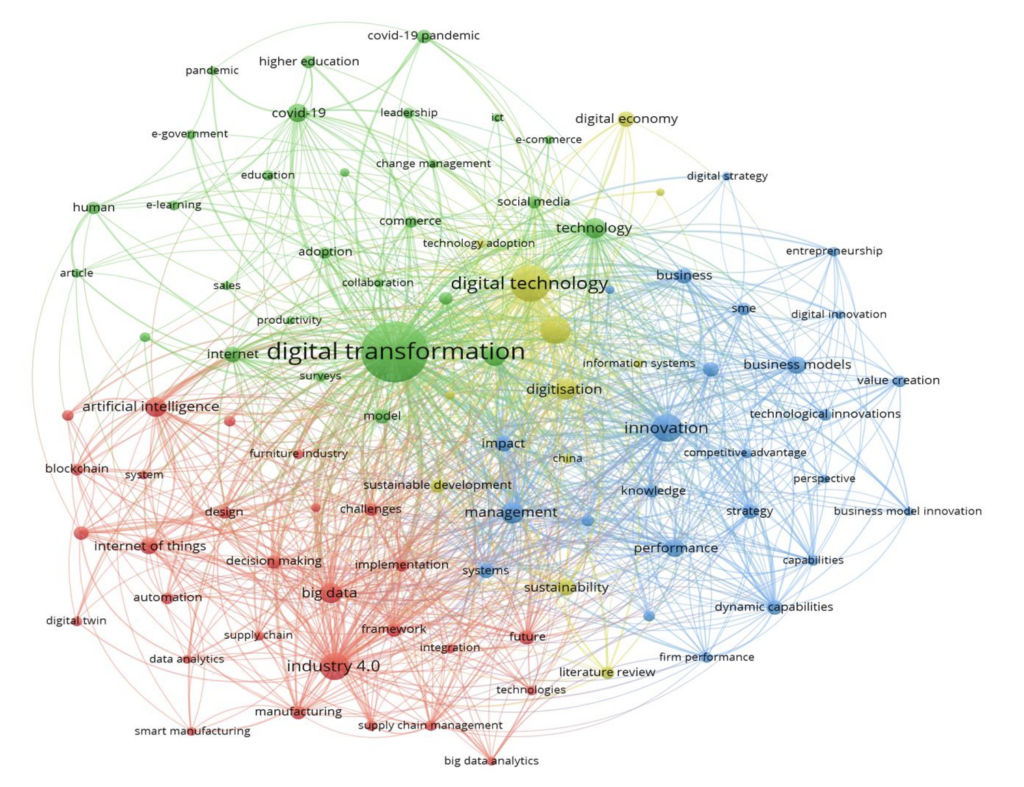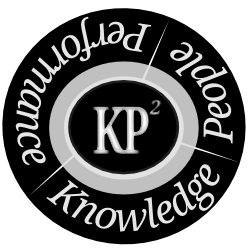In summer 2023, a joint paper, authored by Simon Zeiher, a doctoral student at Munich Business School, Professor Alexander Richter, a Research Fellow at Munich Business School and myself was accepted at the European Conference on Information Systems (ECIS), a premier international conference in the field of information systems, which took place in Kristiansand, Norway. In the paper, titled “Towards Domain-Specific Knowlegde on Digital Transformation – The Case of the Furniture Industry,” we are looking at digital transformation from an industry-level perspective. More specifically, we are focusing on the furniture industry, in which Simon works in his day job.
Micro, macro, meso: Focusing on the industry-level
In digital transformation courses I taught in previous years (details on the course and sample syllabus; overview of courses I teach), I felt participants sometimes struggled to apply research that comes either from individual cases, which – naturally – are very specific to the focal company in question or very high-level frameworks (let’s call them meta-frameworks) that are abstract enough that they could be applied in any type of setting. Most people struggle to transfer findings. Most enlightning, according to feedback I received, were those sessions where we focused on specific industries and the forces at work in these specific industries. Here we can observe responses by various industry stakeholders while learning to appreciate the (considerable) variations in context between distinct industries.
For example, several high-level digital transformation frameworks do take into account triggers for change, the use of different technologies and strategic responses by firms. However, when we compare transformations in the automotive industry (which I have used in some courses as a focal industry) and in the furniture industry (i.e., the focus of the current paper), triggers for change, technologies in-use and firm responses are all likely to be substantially different. In-depth knowledge of the value chains and value creation processes in each industry may thus be required to develop industry-specific, or what we call domain-specific, models that will appeal to both researchers and practitioners. We call this type of research meso-level theorizing and call for more of it.
Digital transformation in manufacturing: The furniture industry
Digital transformation plays a big role in all manufacturing settings, as the network visualization of existing digital transformation research below nicely shows. The red cluster in the bottom left of the graph (constructed with VOS Viewer; see details in the paper) includes research on supply chain management, industry 4.0 and the furniture industry, for instance, all of which have a strong link to manufacturing.

After a review and analysis of the literature, we develop the below industry-specific framework of digital transformation in the furniture industry. For those of you who know the literature, the labels of the boxes will sound familiar. What is different here is the content of each of the boxes or the specific items listed in the boxes. Again, that’s where we believe the industry-specificity really comes into play and adds insight.

Reference:
Zeiher, S., Richter, A., & Wagner, D. 2023. Towards Domain-Specific Knowledge on Digital Transformation – the Case of the Furniture Industry. Proceedings of the 31st European Conference on Information Systems. Atlanta, GA: Association for Information Systems. [Article]

